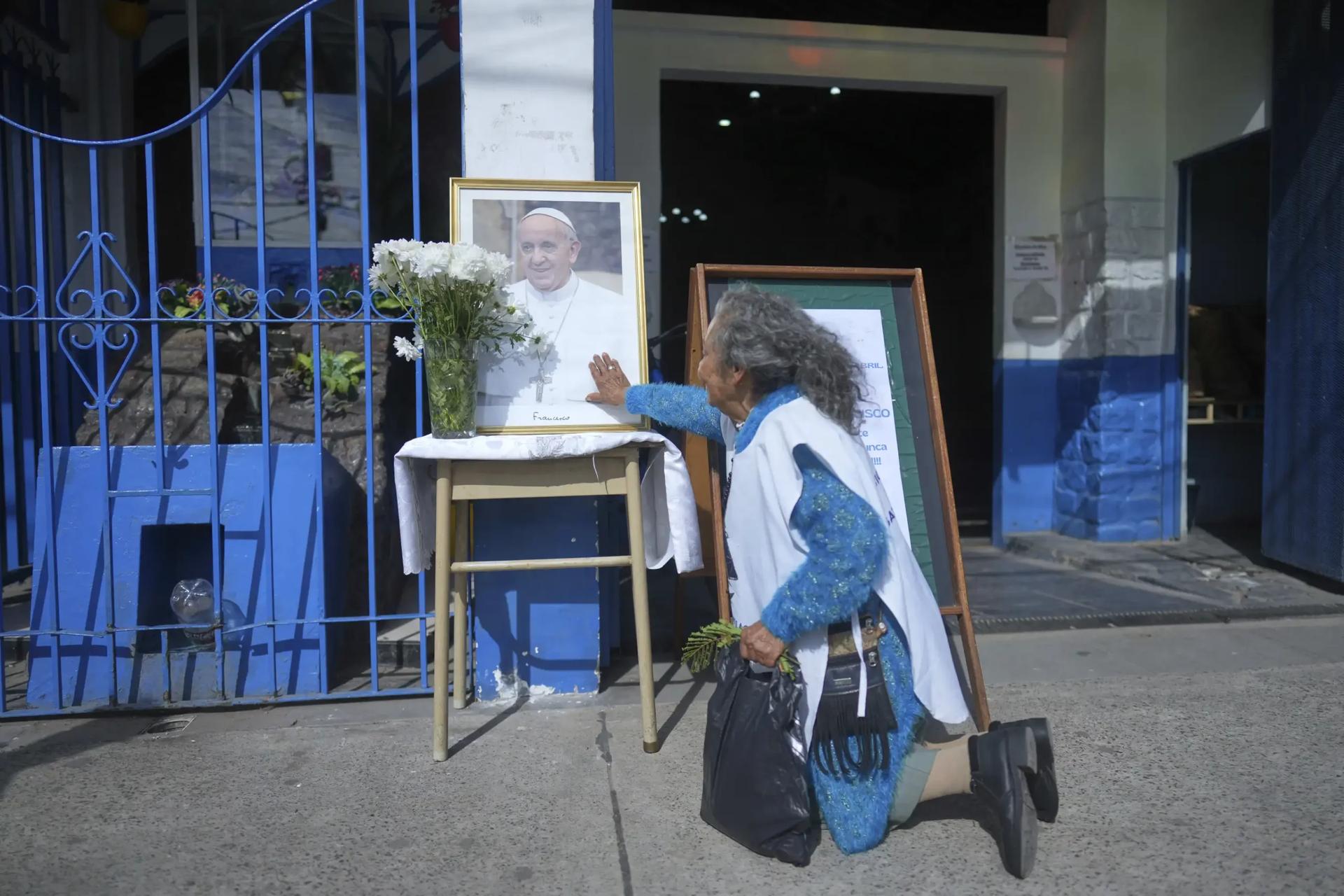SÃO PAULO, Brazil – Pope Francis’s death at 88 in Rome on Apr. 21 has truly affected his motherland of Argentina.
Since the Vatican released the tragic news, there has been unprecedented commotion in the South American nation. The most visible expressions of grief have been coming from the so-called villas de emergencia o villas miseria, as the Argentinians call their slums.
“Sadness is noticeable among the poorest social segments. He was an icon for the poor,” said Obishop Marcelo Margni of Avellaneda-Lanús
Cesar Sanabria, a community leader at Villa 31, noted the atmosphere has been one of sorrow all over the region.
“We, the poor, had a fantastic connection with him. He knew how to talk and how to motivate us,” Sanabria said.
After he was appointed as an Auxiliary Bishop of Buenos Aires, in 1997, Jorge Mario Bergoglio became a frequent visitor of Villa 31 and other poor neighborhoods. With his incentive, the movement of slum priests, created in the 1960s, gained strength.
“He knew our problems, because he frequently came to us and talked to us,” Sanabria remembered.
The Argentine Church plays a central role in providing charitable work for the poor in the country. It keeps numerous social services in poor districts, distributing food, hot meals, medicines, and other goods. Such a network grew during Bergoglio’s years as the capital city’s archbishop (1998-2013).
In 2018, already as the pontiff, Francis welcomed Sanabria in the Vatican for a meeting.
“I had the rare opportunity of showing to him a number of projects for Villa 31. We discussed several of them. He was a great listener and had a peculiar way of being Saint Peter’s successor,” Sanabria said.
Carlos Custer, a long-time labor leader who was Argentina’s ambassador to the Vatican (2003-2008), spoke about Bergoglio’s solidarity with the poor was also noticeable in his defense of the dignity of the neediest in society.
“He would always criticize the current system’s inhumanity, defending those who have been discarded,” Custer told Crux.
That stance would put Francis and current Argentine leader Javier Milei on opposite sides. An ultra-libertarian economist, Milei had been advocating for years a broad transformation of the country’s socioeconomic structure, with the goal of reducing the State’s presence economically and as a provider of relief aid.
On different occasions, Milei would insult Francis during TV interviews, calling him a “communist” and “an imbecile”.
“For a Jesuit, to be called a ‘communist’ is not relevant, but to be called an ‘imbecile’ is not acceptable,” Custer humorously remarked, emphasizing that they met in Rome in Feb. of 2024 and that the Pope “pastorally forgave Milei, but he kept opposing his economic ideas.”
Elected in 2023, Milei put in practice his vision, taking economic measures that further debilitated the poor’s quality of living.
Despite a continuous demand from the Argentine Church for a papal visit, Bergoglio ended up never traveling to his home country again.
“There were no conditions for him to visit Argentina. Our government stimulates intolerance,” Custer said.
In his opinion, Francis had a very clear stance against ultra-liberalism, the financialization of the economy and cutting the rights of the poor.
“That was a political voice, but without a party politics nature. He would denounce bad ideas and suggest ways to deal with the ensuing problems,” he added.
The president issued a statement on Apr. 21 lamenting the pope’s death and praising his “goodness” and “wiseness”.
If his clashes with Milei didn’t necessarily bring him popularity among Argentinians – the president enjoys about 50 percent of support – his defense of a Church that welcomes everybody, from divorced people to members of the LGBT community, apparently led him to be viewed with positive eyes among many.
“His efforts to empower women in the Church, including the appointment of women to play central roles in the Vatican, and his insistence in a synodal Church, in which laypeople and the clergy are equally important, drew the attention, and the support, of many Argentinians,” Custer said.
Taty Almeida, one of the founders of the Mother of Plaza de Mayo – a movement formed by women whose children were abducted by the Armed Forces and disappeared during the Military dictatorship (1976-1983) – defined Bergoglio as “the pope who transformed the Church.”
“Women didn’t have any place in the Church. Now they’re in very relevant offices. Can you imagine the explosion he detonated? Not to mention his humbleness,” she told Crux.
In Almeida’s opinion, “we can only wait that the next pontiff will be faithful to Bergoglio’s legacy.”
That seems to be the expectation of many in Argentina, people who not only celebrate the fact that the pope was their countryman, but also feel that maybe precisely because of it he was able to boost relevant transformations in the Church.
“He was the pope of the poor. We’ll miss him forever. He’s mostly irreplaceable,” Sanabria said.














